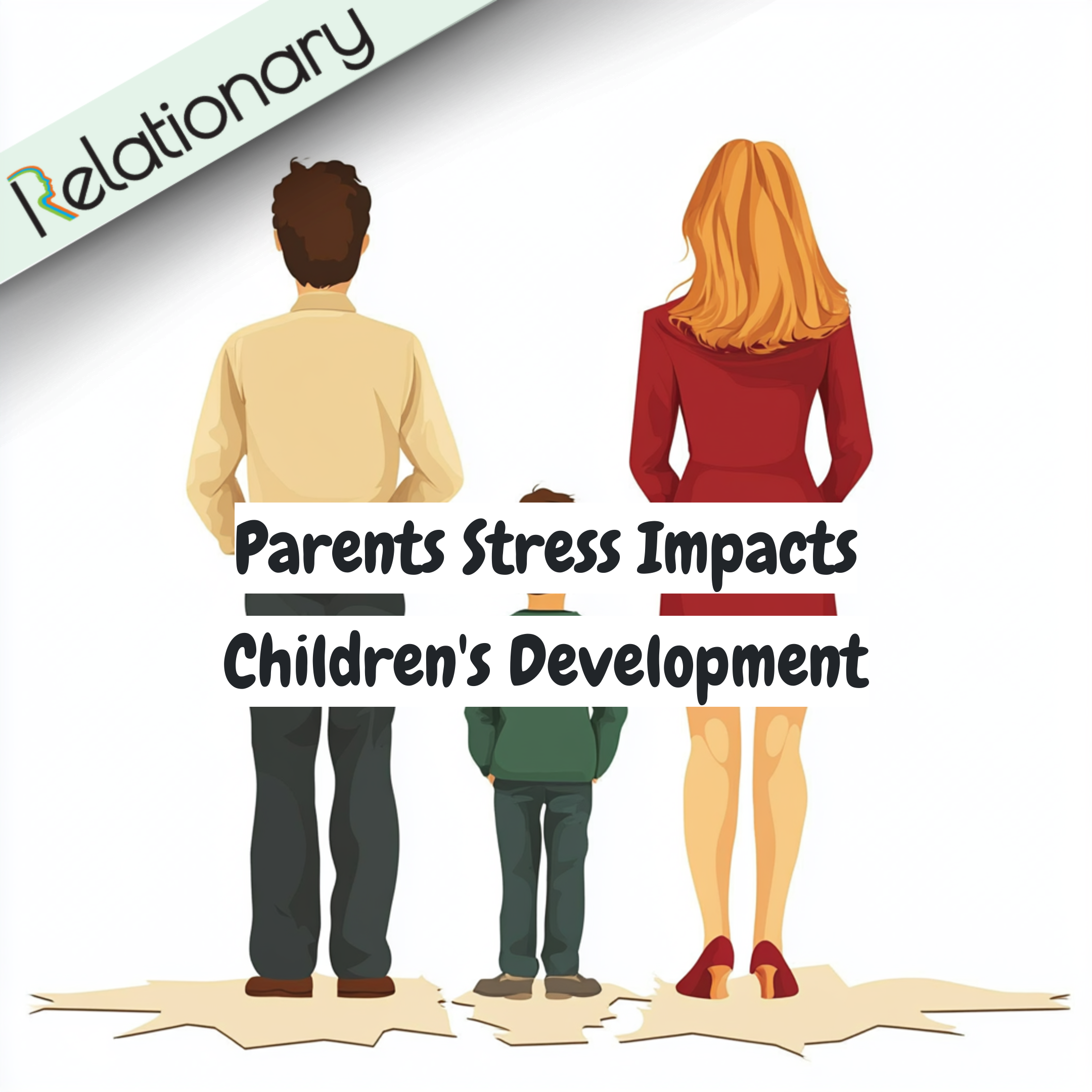Understanding and Reducing Parental Stress: Its Effects and Coping Strategies for Child Development and Behavior
Parental stress can be inevitable, but it doesn’t mean it has to be unmanageable. And when it starts influencing a child’s development and behavior, it’s time to take a step back and address the core causes. Let’s take a deep dive into understanding parental stress, how it affects children and what we can do to handle it effectively.
Introduction
In today’s fast-paced world, parents are often caught in the whirlwind of balancing work and parenting, which can create a significant amount of stress. Parental stress, however, is a shared undercurrent of parental life that can have more profound effects than one might think.
Parental Stress and Its Implications
Parental stress isn’t just about the tired parent dealing with tantrums or a demanding job. It inevitably shapes the kind of environment in which a child grows up. The daily rush and chaos of family life often cloud the fact that children are like sponges, absorbing the vibes and emotions swirling around them.
- Stress and the hustle
- Sensitivity of kids
- Thriving under pressure
While aiming for career milestones or striving to run a smooth household, parents might unknowingly pass their stress onto their children. A parent’s constant fretting over deadlines could condition a child to be constantly worried about their playdates or school projects.
Recognising and Addressing Parental Stress
Despite the stress, it’s essential not to throw parents under the bus. The focus should be on acknowledging these feelings of stress and finding ways to mitigate them.
- The role of parents
- Acknowledging stress
- Importance of managing it
Parents don’t merely exist to take on stress; they strive to create a healthy, nurturing environment for their children. A less stressed parent can foster a better atmosphere for a child’s emotional, psychological, and behavioural development.
Moving Forward
Understanding and managing parental stress is not merely about making parents’ lives easier. It’s about creating a healthier, more nourishing environment for our children. So, let’s explore how we can understand the effects of our stress and find ways to alleviate it—for our sake and for the sake of our little ones.
Parental stress is a common facet of modern life, significantly impacting both parents and their children. Children, highly sensitive and receptive, can unconsciously acquire their parents’ stress-related behaviours, which could potentially impact their personal growth. However, acknowledging and managing this stress is crucial to fostering a healthier, more nurturing environment for a child’s overall development. Therefore, it is essential for parents to understand the ripple effects of their stress and learn strategies to mollify it, ultimately creating a more harmonious home environment.
Grasping the Impact of Parental Stress on Child Development and Behavior
Understanding parental stress goes farther than just addressing its immediate effects—it’s about unraveling its impacts on a child’s burgeoning development and behavior.
Longitudinal research, as seen in sources like PMC and the Wiley Online Library, has provided quantifiable proof of a direct line between parental stress and child development. Elevated parental stress intensifies the risk of developmental issues in children. For example, a study published in PMC demonstrated a correlation between maternal prenatal stress and fetal neurodevelopment, potentially leading to developmental delays.
Nevertheless, the impact of stress on a child’s development isn’t limited to such direct effects. To see the complete picture, we have to look at more indirect impacts, such as changes in parenting behavior that result from stress. Parenting under the influence of excessive stress can warp into a less nurturing, less effective style that might inadvertently foster negative behaviors in children. Hypercriticism, neglect, or inconsistency in parenting might take root when parents are stressed, all of which could negatively impact the development of a child.
Stressed-out parents may also have less time, energy, and patience for play and constructive communication—integral to a child’s social and emotional development. When stress steals these nurturing opportunities away from kids, it can result in long-term impacts on their behavior and ability to cope with future challenges.
All in all, parental stress casts a wide net of influence on a child’s development and behavior. The more we grasp this, the better prepared we’ll be to mitigate those potential effects.
A Peek into the Emotional Health of Children
Parental stress can be a significant determinant of a child’s emotional health. The waves of stress that originate from parents can often engulf their children, impacting their state of mind and self-esteem. Here is a breakdown of how parental stress affects children.
Impact on Emotional State
When parents navigate chronically turbulent emotional seas, it’s often the kids who end up feeling seasick, so to speak. The stress appears as anxiety in children, translating to differing behaviors depending on the child.
Reaction to Parental Stress
There’s no one rigid way children react to parental stress. Different children respond differently:
- Some might become exceptionally quiet, as if they’ve constructed an impenetrable emotional wall.
- Others exhibit more overt symptoms, like irritability or misbehavior.
- From bedtime nightmares to an insatiable need for attention, the imprint of stress is multiform and tricky to pin down.
Influence of Different Stressors
Reducer oversimplification, it’s crucial to note that different stressors produce different responses in different children. Various factors like the child’s age, personality, or environment can modulate these effects. For instance:
- A parent’s financial stress might impact a child differently than a parent’s relationship stress.
Effect on Mental Wellness
Parental stress can also take a toll on a child’s mental wellness. Over time, the lack of responsive nurturing from a stressed parent can negatively affect a child’s mental health, tipping their emotional balance. Depression, anxiety, and other mental health disorders have been linked to chronic parental stress.
In summary, parental stress significantly impacts a child’s emotional health and mental wellness. The effects are often multiform and dependent on specific factors such as the type of stressor and the child’s unique characteristics. Addressing parental stress is not just about parents—it’s an investment in the emotional futures of their children. Though it might be challenging, it is considered worthwhile by those who have undertaken the journey.
Parental Stress and Child’s Psychological Development
Let’s get real – the road of parenting is rife with stress. But how does this parental stress and anxiety seep into a child’s psychological development? It’s more significant than you might think, with studies backing this up.
Research undertaken by PMC reports a palpable link between parental stress and a child’s psychological make-up. Stressed parents can inadvertently create a volatile environment for their children, triggering feelings of uncertainty and instability. This chaotic ecosystem chips away at their mental armor, paving the way for issues like lower self-esteem, anxiety, depression, and even behavioral problems.
View another angle, and we meet the findings of ResearchGate, revealing how the on-going pandemic has significantly amplified parental stress levels, reflecting perceptibly on early social-emotional development of children. The study suggests that high stress in parents during this period promotes fear, withdrawal, and aggressive responses in children.
Things get more serious when we talk about the long-term effects. Unaddressed parental stress can shape a child’s future behavior and even their general life outlook. Too much exposure to persistent stress can lead to children normalizing this state of heightened anxiety. It’s not uncommon for them to then carry these stress patterns into their adulthood, influencing everything from their relationships to their overall mental resilience.
The bottom line? The connection between parental stress and a child’s psychological development is inescapable. So, as parents, it’s our job to recognize and manage our anxieties effectively – the wellbeing of our children depends on this. But fear not, coping strategies are closer than you think, and we’ve got them lined up in the coming sections.
Active Coping Strategies for Parents
Hey, we’re all human. Stress is a part of life but it doesn’t mean we can’t handle it. And when it comes to dealing with parental stress, there’s no one-size-fits-all approach. But, there are a handful of tried and tested strategies, backed by child behavior experts and psychologists, that can keep stress in check.
First off, self-care. Yes, it sounds pretty much like a buzzword but believe it or not, it’s a game-changer! Make time for physical activity, be it a brisk walk, stretching out on a yoga mat, or even dancing around your living room. A little movement goes a long way in diffusing stress.
Nutrition is another pillar of self-care. Resist the urge to lean into those stress-snack cravings and instead, fuel your body with balanced, nutritious meals. Staying hydrated and limiting caffeine intake can also positively impact your stress levels.
Meditation and deep breathing exercises can make a world of difference too. Training your brain to stay calm helps in managing stress, and you don’t need a secluded mountaintop for it. Small attempts – even just ten minutes daily – can have a noticeable impact on reducing stress levels.
Remember to catch enough Zzzs! Lack of sleep can amplify your stress, causing a vicious cycle. Aim for 7-8 hours of quality sleep, and if you’re having trouble sleeping, consult a professional.
Find a hobby, or better, revisit an old one. Engaging in activities that you love serves as a positive distraction and can provide a creative outlet to vent your stress.
Lastly, resilience. Remember, stress doesn’t define you as a parent. Let’s not beat ourselves up over the occasional bad day but instead accept it, learn from it, and focus on doing better next time – developing resilience.
Cutting ourselves some slack, accepting that it’s okay to have off days, seeking help from friends, family, or professionals when needed, and understanding that stress does not portray us as bad parents can allow us to bounce back from stressful situations.
These strategies aren’t just a temporary patch, they may lead to a generally healthier, happier version of you. And who knows, in the process, you might also model some healthy stress-coping strategies for your kids!
Reducing Parental Stress for Positive Impact
Everybody’s stressed out from time to time, parents included. A certain level of stress is normal. But when it becomes chronic, it not only affects your well-being but also that of your child. So, in understanding the importance of reducing parental stress, we need to look at how it can influence child development and behavior positively.
You see, children are like sponges, absorbing emotions and mirroring behaviors off their parents. Thus, when parents are less stressed, children tend to be happier, more relaxed, and confident. They respond better to stress themselves and exhibit fewer behavioral problems.
So, how can we reckon with the parental stress issue? Here are few helpful suggestions.
One approach is to seek professional help. A family therapist or psychologist can provide valuable strategies for stress management and improved family dynamics. A professional counselor can also help you identify your triggers and offer techniques to handle them.
Another suggestion is to let go of perfection. Not every dinner needs to be a three-course meal. Not every moment has to be a teachable moment. It’s okay to reach for easy solutions sometimes, and it’s equally okay if your child indulges in a little too much screen time on a certain day. Aim for progress, not perfection.
Prioritizing self-care is another useful strategy. It’s not selfish to allot time to take care of your physical, emotional, and mental health. Whether it’s by doing yoga, reading, having a coffee date with a friend, or just some solitude, you should keep your well-being on your to-do list.
Lastly, leaning on your support system can make a world of difference. Don’t hesitate to ask for help when you need it. Whether it’s your partner, a family member, a friend, or a neighbor—let them lend a hand. And remember, there are plenty of parenting support options out there, too.
In taking deliberate steps to lessen parental stress, we’re not just taking care of ourselves, but also crafting a more supportive, nurturing environment for our children to thrive in.
The Role of Support Networks in Mitigating Parental Stress
Let’s be honest, parenting can feel like a solitary job at times. But, here’s the thing – it doesn’t have to be. Fact is, leaning on an army of supporters can go a long way to keep parental stress at bay. Both internal (family, friends) and external (professional therapists, parenting groups, online communities) support networks play a crucial role in managing those tough moments.
Start by acknowledging the support that’s almost always within arm’s reach – your kith and kin. Friends relate, grandparents soothe, siblings distract, and partners shoulder the load. They all offer that vital, restorative respite you need. They’re not only there to lend a supportive ear, but also to provide practical help – from babysitting on challenging days to grocery shopping when you’re drowning in tasks.
Simultaneously, external support adds another layer of relief. Websites like Relationary offer handy resources for parents to navigate the labyrinth that is parenting. It provides evidence-based methods of stress control, along with personalized tools for maintaining work-life balance.
For professionals who are juggling the demands of work alongside family life, platforms like Relationary – Balancing Life and Work serve as a lifeline. They offer strategies to ease the stress and develop resilience, all while managing work obligations. It’s a clear reminder that you’re not alone in this struggle, and there are solutions waiting, right at your fingertips.
So, the bottom line? Reach out. Don’t just bear with the stress, share it. Harness the power of your support networks and make parenting an empowering journey, not a stressful obligation.
Conclusion
As we wrap things up, it’s clear that parental stress doesn’t exist in a vacuum—it’s a dynamic factor that can shape children’s development and behavior in substantial ways. By understanding its impacts, we gain an essential tool: awareness. This knowledge enables us to recognize when our stress levels could be influential, nudging us to take effective steps towards maintaining a balanced emotional state.
For one, we’ve seen how parental stress ties into children’s emotional health and psychology. While stress is a part of life, unchecked stress can generate ricochets echoing into the mental and emotional spaces of our young ones. Therefore, our stress isn’t just ours but also an experience we share, knowingly or unknowingly, with our kids.
Yet, there’s good news. We might not be able to avoid stress altogether, but we can adjust our responses to it. By using tried-and-tested stress management techniques, resilience strategies, and taking advantage of support networks, managing stress can become a lot less overwhelming and a lot more doable.
Parental stress management is not about striving for perfection. It’s about arming ourselves with the tools and mindsets to better handle the highs and lows of parenting life. By doing so, we foster not only our wellbeing but also ensure our children grow in a more balanced, stress-controlled environment.
So, lift your heads up, dear parents. Recognize stress as part and parcel of this beautiful yet challenging journey called parenting. Remember you’re not alone, and there’s plenty of support out there to help you along the way. Let’s tackle parental stress today, shaping a positive impact on our kids’ tomorrows. Here’s to strength and balance, for us and our children.





0 Comments